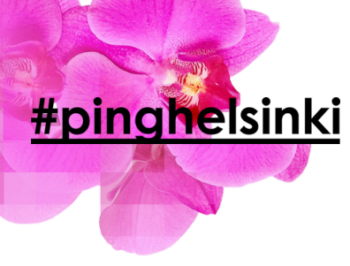

The popularity of TikTok keeps on increasing, especially among younger people. Our research from last spring showed that over half of 15-24-year-old Finns use TikTok at least once a month. Last year the number was only one in four. With the huge popularity of TikTok, copies of a similar platform have been popping up here, there and everywhere. Recently Instagram got in on the game with their new feature, Instagram Reels.
I took a look into both TikTok and Reels, and this article tells you everything you need to know about these platforms, their differences, and potential in influencer marketing.
Reels is a new feature inside the Instagram app, that launched in August also in Finland. With the Reels feature Instagram users can create 30 second video clips utilising audio, text and other effects. You can use your own audio, or download music from the large music library. Reels also has many other useful tools that you can use to edit videos. Reels videos can be shared in Stories, feed or in the new Reels tab in your profile.
Although on the surface Reels looks exactly like a TikTok copy, there are differences too. Especially when it comes to usability and finding new videos.
The editing tools of both platforms are very similar, but when TikTok videos can last up to a minute, after a recent update to the platform Instagram currently limits the length of Reels videos to only 30 seconds. However, that is already double the length of what Instagram started with. In the first few weeks of Reels being available users were only able to create videos that lasted max 15 seconds.
In TikTok you browse videos in the For You section, a feed curated by algorithms, which shows you exactly the kind of content that suits your interests. You can also search videos easily based on for example keywords, challenges or background music. And this is exactly what makes TikTok so addictive. When you are shown interesting, visual and funny videos one after another, it is difficult to stop watching them.
In Instagram, you can browse Reels videos on the explore page. However, the page only shows one video at a time. Therefore, finding new interesting videos is a lot more difficult. There’s also a separate Reels tab on users’ profiles, through which you can watch the videos from that user.
A significant difference and definitely an advantage for TikTok is that it is easy to share videos to other platforms. TikTok allows you to download the video to your own device with music, whereas in Reels you can only download the video without music. A large number of Reels videos are in fact direct uploads from TikTok, undoubtedly aided by the fact that it is so easy. The videos come with TikTok’s digital watermark, which shows the origin of the video and directs users towards TikTok.
Although there are some ads and commercial collaborations on TikTok, commercialism isn’t a very natural part of the platform. At least so far. Reels doesn’t offer direct sales opportunities either, but it is considerably easier to connect into the audience’s inspiration and purchase journey as you can center all your content into one channel. For example, adding the Swipe up feature to Reels would also hugely increase its points in comparison to TikTok.
Another aspect to keep in mind when planning for possible influencer collaborations is the newness of Instagram Reels. Facebook, and therefore Instagram that is owned by Facebook, are known for the fact that their algorithms reward users who try and quickly adopt new features. Impressions on Reels videos can reach a totally different level than content on feed or stories.
PING Helsinki Matchmaker Pinja Kuivalainen, who is also a microinfluencer herself, gave Reels a try already on the week it was launched. So far Pinja’s first video has reached over 15,500 impressions, when usually the impressions on her content average between 800 and 3,000.
Even though the popularity of TikTok keeps growing in Finland, the international situation of the app is more uncertain.When the US President Donald Trump threatened to ban TikTok in the USA, many TikTokers got worried about their channel and losing the audience they spent so much time and effort building.
TikTokers, and content creators in general, have woken up to the reality that it’s not a good idea to rely solely on one platform in order to get by. It’s good to remember that nobody can truly own their social media channel. Rather, it’s more like you are borrowing it from the provider.
Therefore it is a good idea to be on multiple platforms and thus widen and diversify your audience.